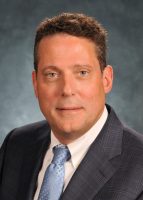Greenhouse Ventures, a startup accelerator for ancillary businesses in the cannabis space, announced today the launch of a series of educational events throughout Pennsylvania, partnering with The Lambert Center for the Study of Medicinal Cannabis and Hemp at Thomas Jefferson University. According to the press release, the series of talks will be focused on Pennsylvania’s legislation regarding medical cannabis.
 “The PA Medicinal Cannabis Education Tour seeks to rectify the current lack of education on medicinal cannabis by providing current, reliable information on medicinal marijuana and its uses,” reads the press release. The events come at an opportune time: Pennsylvania recently announced qualifying permit applications for growers and dispensaries. As the state moves forward with their plan to fully implement a medical cannabis program by 2018, those looking to learn more about the regulations can attend these talks throughout the state.
“The PA Medicinal Cannabis Education Tour seeks to rectify the current lack of education on medicinal cannabis by providing current, reliable information on medicinal marijuana and its uses,” reads the press release. The events come at an opportune time: Pennsylvania recently announced qualifying permit applications for growers and dispensaries. As the state moves forward with their plan to fully implement a medical cannabis program by 2018, those looking to learn more about the regulations can attend these talks throughout the state.
The PA Medicinal Cannabis Education Tour will make stops in six cities, one for each of the regions set by the Department of Health: Tuesday, July 25th in Philadelphia; Wednesday, July 26th in Allentown; Tuesday, August 1st in Pittsburgh; Wednesday, August 2nd in Erie; Tuesday, September 26th in Harrisburg and Wednesday, September 27th in State College. The educational content is developed by the Lambert Center at Thomas Jefferson, the only such program dedicated to cannabinoid therapy. “These programs will educate healthcare professionals on the basic science underlying the pharmacologic and therapeutic options associated with medical cannabis in patient care, clinical insights on the use of medicinal cannabis, and provide information on legislative measures of Pennsylvania state law on the use, recommendation and dispensing of medical marijuana for medical conditions,” reads the press release.

Last year, The Lambert Center hosted an accredited CME course as part of Greenhouse Ventures’ industry conference, Innovation in the Cannabis Industry: Future Outlook. “The Lambert Center for the Study of Medicinal Cannabis and Hemp at Thomas Jefferson University is proud to support and participate in the PA Medicinal Cannabis Education Tour,” says Charles V. Pollack, Jr., MD, director of the Lambert Center. “The Lambert Center is the only comprehensive academic resource for education, research, and practice for the therapeutic use of cannabinoids to be based in a US health sciences university. We view the PA Tour as an essential education piece to prepare Pennsylvania doctors and assist in a smooth rollout of Pennsylvania’s Medical Cannabis industry.”
Sara Jane Ward, PhD, is an assistant professor at the Center for Substance Abuse and Research at the Lewis Katz School of Medicine at Temple University and one of the course instructors on the education tour. She says a large part of the event series is to settle old misconceptions about cannabis. “There are a lot of misconceptions and misunderstandings on cannabis as a medicine in the medical community, because historically medical students are not taught about cannabis and the endocannabinoid system,” says Ward. “I’m looking forward to working with Greenhouse Ventures and The Lambert Center for the Study of Medicinal Cannabis and Hemp, to educate healthcare professionals across Pennsylvania on the health benefits of cannabis.”
“A common setback for states that are implementing medical cannabis regulations is the lack of interest and sign ups from doctors and patients,” says Kevin Provost, executive officer of Greenhouse Ventures. “With reputable medical institutions like Thomas Jefferson University providing entry level education on medicinal cannabis and the endocannabinoid system, hopefully healthcare professionals across the state will realize this is real medicine, that can bring significant medical benefits to thousands of patients, and that now is the time for them to learn, before the industry is open in Pennsylvania.”
The first event in the educational series will be in Center City, Philadelphia on Tuesday, July 25th in the Bluemle Life Sciences Building at Thomas Jefferson University.






